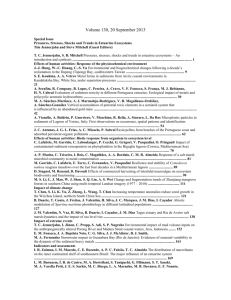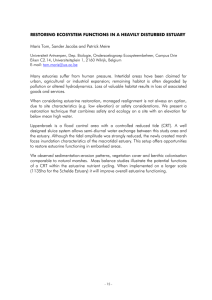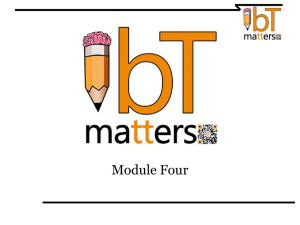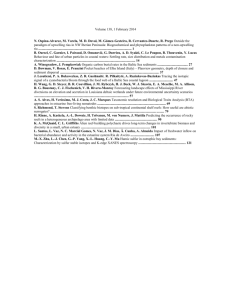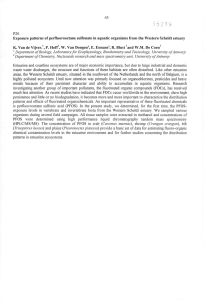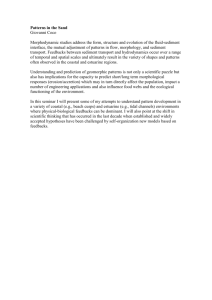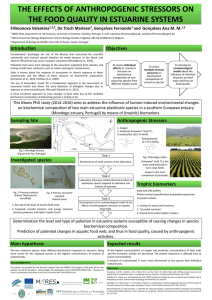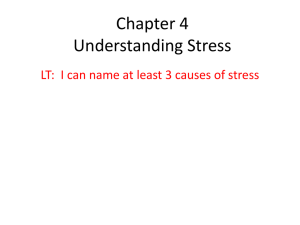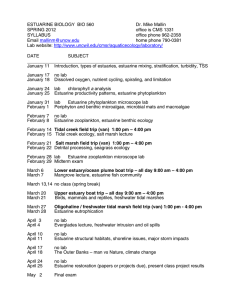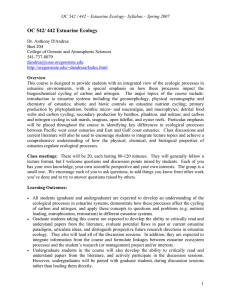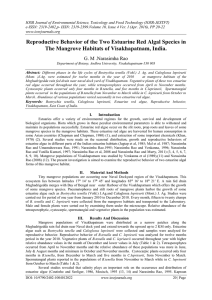B S IOLOGY
advertisement
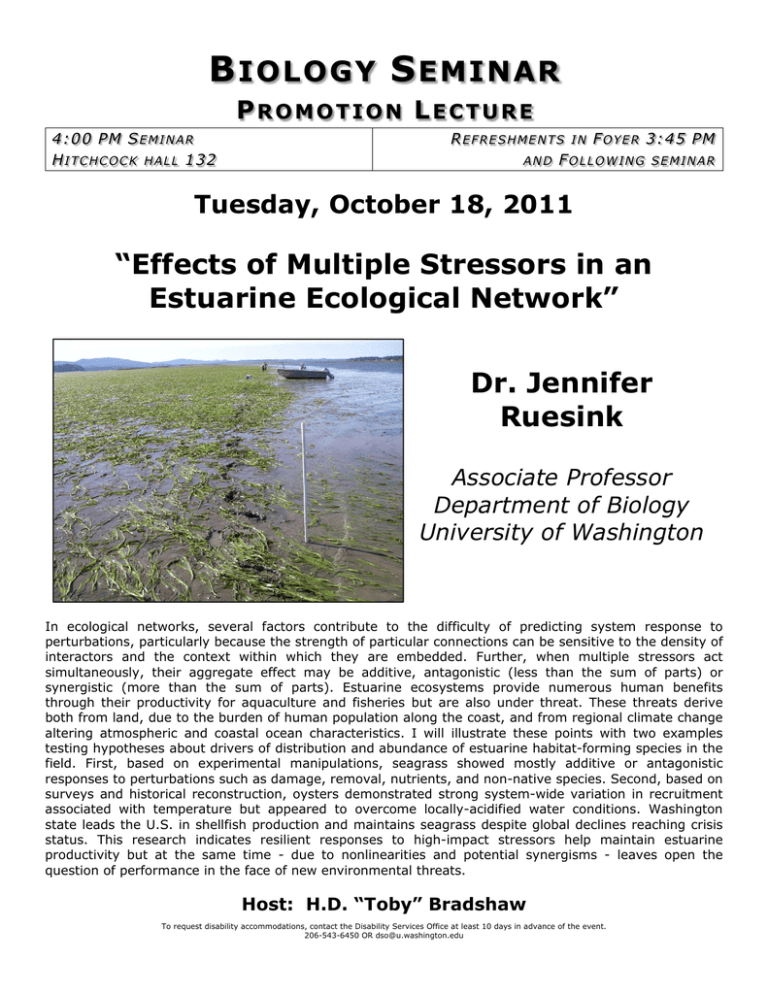
B IOLOGY S EMINAR PROMOTION LECTURE 4:00 PM S E M I N A R H I T C H C O C K H A L L 132 R E F R E S H M E N T S I N F O Y E R 3:45 PM AND FOLLOWING SEMINAR Tuesday, October 18, 2011 “Effects of Multiple Stressors in an Estuarine Ecological Network” Dr. Jennifer Ruesink Associate Professor Department of Biology University of Washington In ecological networks, several factors contribute to the difficulty of predicting system response to perturbations, particularly because the strength of particular connections can be sensitive to the density of interactors and the context within which they are embedded. Further, when multiple stressors act simultaneously, their aggregate effect may be additive, antagonistic (less than the sum of parts) or synergistic (more than the sum of parts). Estuarine ecosystems provide numerous human benefits through their productivity for aquaculture and fisheries but are also under threat. These threats derive both from land, due to the burden of human population along the coast, and from regional climate change altering atmospheric and coastal ocean characteristics. I will illustrate these points with two examples testing hypotheses about drivers of distribution and abundance of estuarine habitat-forming species in the field. First, based on experimental manipulations, seagrass showed mostly additive or antagonistic responses to perturbations such as damage, removal, nutrients, and non-native species. Second, based on surveys and historical reconstruction, oysters demonstrated strong system-wide variation in recruitment associated with temperature but appeared to overcome locally-acidified water conditions. Washington state leads the U.S. in shellfish production and maintains seagrass despite global declines reaching crisis status. This research indicates resilient responses to high-impact stressors help maintain estuarine productivity but at the same time - due to nonlinearities and potential synergisms - leaves open the question of performance in the face of new environmental threats. Host: H.D. “Toby” Bradshaw To request disability accommodations, contact the Disability Services Office at least 10 days in advance of the event. 206-543-6450 OR dso@u.washington.edu
